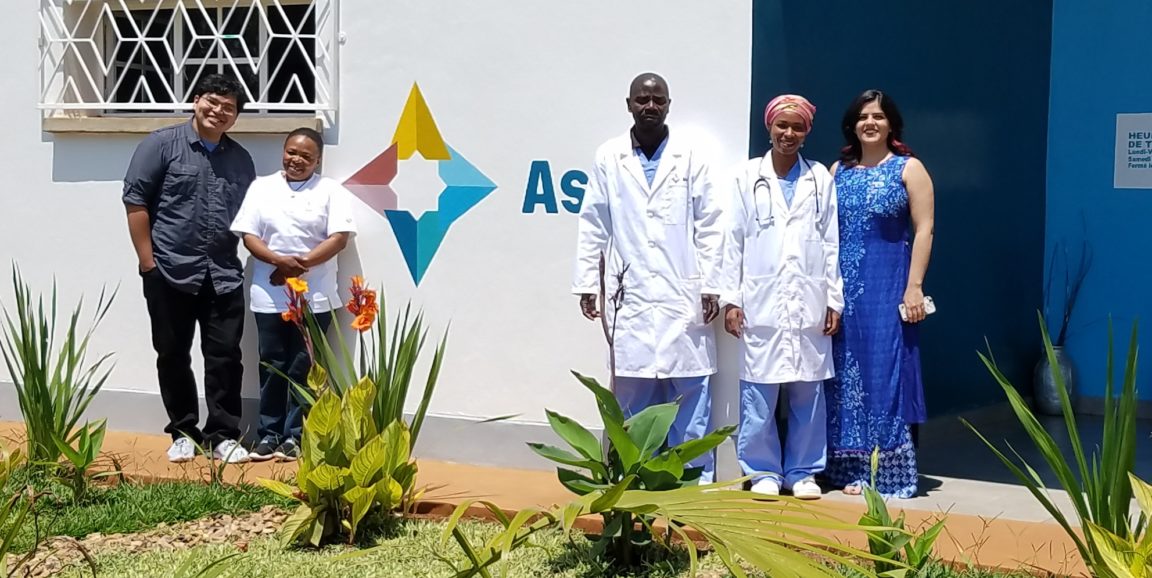Data analysts are critical to medical research -- particularly to epidemiology studies that look at the incidence, distribution and determinants of health conditions in specific populations. So I was happy to have the opportunity to speak with Jonathan Altamirano, a research data analyst in Stanford's Global Child Health Program.
How did you get involved in global health research?
Growing up, I spent summers with family in Nicaragua in a very poor, rural coastal village called Puerto Cabezas. We would often lose water around noon and power by sunset. Personally, I was lucky. I had food on the table every night. But I saw kids who didn't -- and that was my biggest impetus for getting into global health. I also got dengue and malaria one summer, which got me interested in science and epidemiology. It's a weird thing to say: A mosquito almost killed me, so I wanted to go into medicine.
I knew I wanted to help less fortunate populations, but I wasn't sure how I'd fit into that landscape. As a biology undergraduate at Stanford, I then took an epidemiology class taught by Bonnie Maldonado, MD, and I fell in love with it. It looked at how best to approach problems: If you have an intervention, is it effective or not? And how can you tell? That got me interested in statistics and ways to model diseases.
When I was getting my masters in biology at Stanford, I took another class with Dr. Maldonado just after she started her polio project in Mexico, which is investigating vaccine-derived poliovirus transmission. And I was hired as a research data analyst for the project.
You're now working on a project in the Democratic Republic of the Congo. What exactly are you studying?
We're acting as external evaluators for Asili, a poverty-reduction program launched by the American Refugee Committee and IDEO.org aimed at improving child survival and reducing poverty in South Kivu. They're bringing clean water and small-format health clinics to help these communities recover from years of civil conflict. I'm working with a team including Rasika Behl, Clea Sarnquist and Bonnie Maldonado to collect and analyze on-site data to measure the impact of these interventions.
We're looking at household demographics -- such as what their house is made of, whether they have land and other indicators of wealth. We're also collecting various health information on the children -- such as the incidence of stunting, wasting, diarrhea, fever and cough. And we're collecting data on the mothers, looking at women empowerment metrics and views on gender relations.
We collect this data in the field with tablets, which I program and setup. After we provide training, local data collectors go out into the community and survey the households. We collected all the baseline data in 2016 and 2017. We're now collecting the same data after the interventions to evaluate the effectiveness of Asili's clean water and health clinic programs. We're also interested in characterizing this understudied population.
Why did you recently travel to DRC? What was that like?
In April, I went to South Kivu to help train Asili data collectors to take the end-line data. It was really great to get to know the American Refugee Committee team.
This was my first time in DRC, and I was struck by similarities with my family's village in Nicaragua. The colors of the houses were the same and the roofs were made of the same kind of corrugated metal. I saw households with a lot of kids in the same space, and I was like 'yeah, everyone had that in Nicaragua.' Also, an older woman was running a small restaurant -- consisting of plastic lawn chairs and a giant cooking pot. And I immediately pictured our neighbor lady in Nicaragua who made carne asada every night. Of course, the villages in DRC weren't exactly the same, but they brought up childhood memories.
What's next for you?
We hope to continue working with American Refugee Committee to evaluate Asili as they roll out the program in new parts of Bukavu over the next several years.
Our team is also completing a randomized clinical trial on a gender-based violence intervention, which was rolled out in schools in Kenyan informal settlements to reduce rates of sexual assault in adolescents. We also recently secured funding to collect pilot data on gender-based violence prevention in Fiji and other Pacific islands, in collaboration with the RISE program and Monash University.
However, I'm hoping to apply to medical school next year, once I have time to study for the MCATs.
Photo, of Jonathan Altamarino and collaborators in front of a Asili clinic, by Valery Namuto




